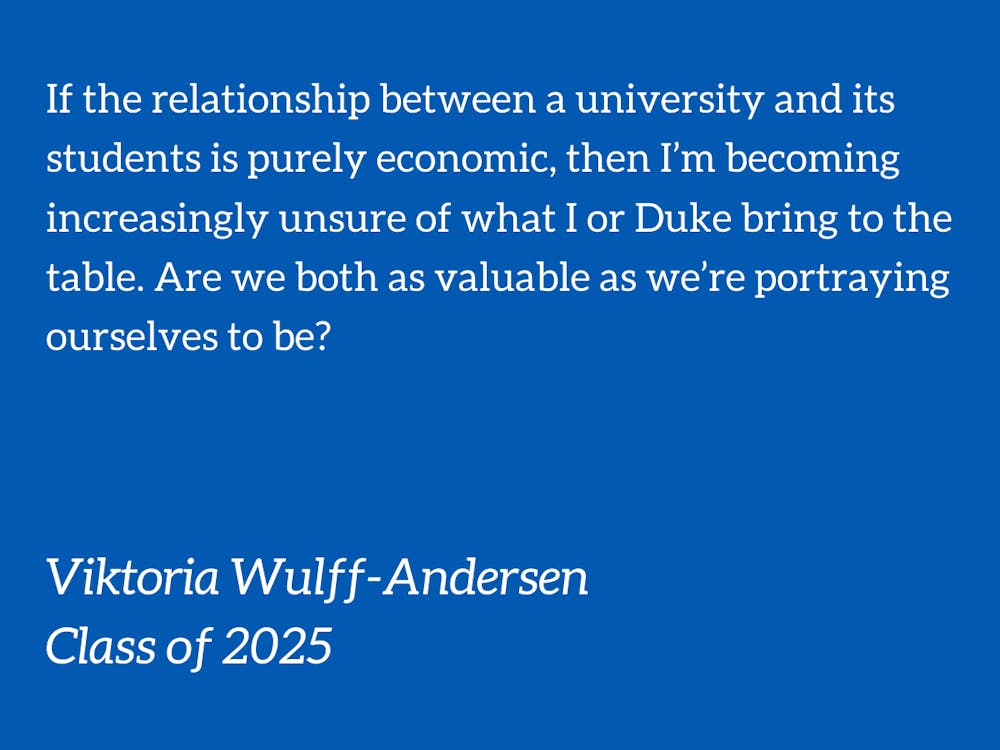It’s no secret that universities don’t open their doors to students out of the goodness of their hearts. They’re not public schools operating for the sole purpose of providing an education to relevant individuals. Instead, universities are the hub of their mercantile relationships with students, where an education and recognized credentials are offered in exchange for money, publicity and student-led advancement.
Regardless of whether a university is for-profit or not, universities view their students in terms of economic gain. This extends beyond tuition, loans and fees. If a student excels in their field or makes a ground-breaking accomplishment, they in turn increase the credibility of their alma mater, generating free publicity and potential new clients. If a student gains great wealth through their profession, they may in turn donate a good sum to their school. Athletes are particularly valuable, with college sports bringing in a collective $14 billion in revenue for schools annually, and international students are a worthwhile investment by contributing $39 billion to our national economy.
Just look at what Duke defines as what they look for on their undergraduate admissions site: “students ready to respond to those opportunities intelligently, creatively, and enthusiastically...We appreciate well-rounded and well-lopsided students that will make impact on our campus and in our community.” Essentially, Duke has an ongoing Craigslist advertisement for students that will eventually improve and benefit their campus. The implicit meaning behind these pretty words? If we scratch your back, you have to scratch ours.
Yet, if the relationship between a university and its students is purely economic, then I’m becoming increasingly unsure of what I or Duke bring to the table. Are we both as valuable as we’re portraying ourselves to be?
It seems like every Blue Devil has their part of the bargain figured out. Whether it’s research, athletics, academic competitions or other accolades, it’s almost as if every student knows how they’re going to make their mark and what their part of Duke’s legacy will be. Paolo Banchero knows he’s going to be known as one of the strongest forwards Duke has ever seen. Yasa Baig and James Marek know they’ll go down in the institution’s history as prestigious Marshall Scholars. Kacia Anderson, Shrey Majmudar and Priya Parkash will be notably recognized as undergraduate finalists for the Young Trustee position.
How is what I have to offer even comparable? I can say that I’m a member of numerous student organizations, but how does that hold a candle to those who are executive officers in those organizations? My claims to fame within Duke Student Government and The Chronicle are matched by the dozens of other students who have done the same thing. Living in an academically-rigorous institution means facing my mediocrity every day. I’m consistently forced to grapple with how my grades and achievements and standings have all been done before. I’m consistently forced to face the fact that my debt to Duke, which I’m supposed to pay back beyond financial means, will simply have to accrue interest for the rest of my life.
Perhaps, however, my situation is mutual with my trade partner. Duke’s exclamations of what it brings to the table are nothing short of a fantasy. It proposes “exceptional academics, enviable spirit, and a community of support.” It promises that no other school can compare, as there’s “an element of camaraderie…that doesn’t exist anywhere else.” Yet, in many ways, Duke struggles to stand out from its peers—much like me. Duke’s 8:1 student to faculty ratio is easily bested by Harvard’s 7:1 student to faculty ratio. Many of Duke’s recent innovations—such as the QuadEx Housing Model and the notion of pre-orientation programs—derive from similar initiatives from similarly ranked institutions like Rice or Dartmouth. Promises of a collaborative community, diversity, entrepreneurship, research opportunities, culture and more are all promises that can be fulfilled in other locations.
If Duke and I have one thing in common, it’s our shared failures in upholding our end of the bargain. Thus, I’ve found solace from reveling in my lack of worthiness and inability to bring something original to the table, because I know that my struggles are reciprocated. And if we both match in terms of the quality of our contributions, then our trade is still equal and therefore fulfilled. There’s plenty of time left in my undergraduate career for both our rapport and the quality of our deal to be increased. For the time being, I’m content knowing that where I lack comparable merit, my university matches me.
Viktoria Wulff-Andersen is a Trinity first-year. Her column usually runs on alternate Mondays.
Get The Chronicle straight to your inbox
Sign up for our weekly newsletter. Cancel at any time.
Viktoria Wulff-Andersen is a Trinity junior and the opinion editor of The Chronicle's 119th volume.

